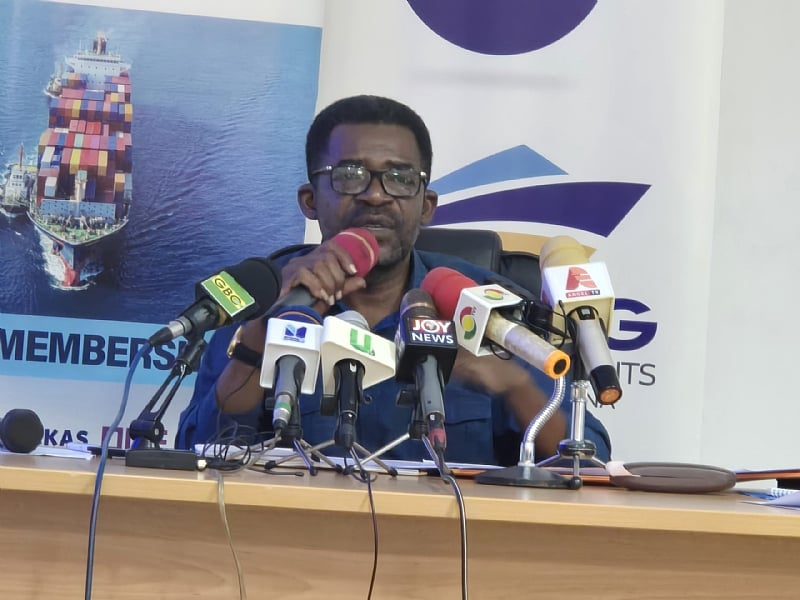The Ship Owners and Agents Association of Ghana (SOAAG) has strongly opposed recent claims from freight forwarders and traders that shipping lines are violating regulations set by the Bank of Ghana (BOG) by charging for services in US dollars. Mr. Adam Imoru Ayarna, an Executive Member of SOAAG, addressed these pressing concerns by articulating the distinction between “pegging” fees in dollars and actually charging in dollars. He elaborated that freight costs are not revenues for local agents but rather funds collected on behalf of international principals based on agreements made with shippers. This clarification is essential to understanding the financial dynamics at play within the shipping sector. Ayarna emphasized that invoicing in dollars is a standard practice necessary for conversion into local currency, as the ultimate goal is compliance with Ghanaian law, which mandates charging in Ghanaian cedis.
Mr. Ayarna further provided insight into the economic realities of shipping practices, questioning the feasibility of the BOG’s operations if exchange rates were not a part of the process. By highlighting the necessity of converting import values into local currency, he made a compelling argument for the practice of pegging fees to the dollar. This point reinforces the idea that international trade often requires a cross-border financial framework that includes the currency of major global economies, particularly the US dollar. When traders make purchases abroad, it is impractical to only consider local currency without referencing a standard measure, such as the dollar, to gauge real value. This added complexity underscores why the shipping industry operates as it does, needing to navigate multiple currencies while still adhering to domestic regulations.
In discussing regulatory compliance, particularly concerning Regulations Five of the Ghana Shippers’ Authority Regulations of 2012, Mr. Ayarna clarified that the responsibility for setting rates lies independently with the freight lines. He pointed out that while the Ghana Shippers’ Authority (GSA) is tasked with negotiating on behalf of shippers, the heterogeneity in operating cost bases among various shipping lines makes it ineffective for SOAAG to represent their members in such negotiations. Each shipping line has unique financial considerations, making it impractical for any single association to broker universal agreements. This decentralized approach to rate setting means that discussions around freight costs need to be handled on an individual basis, respecting the distinct needs and market positions of different shipping companies.
Moreover, Mr. Ayarna highlighted the procedural norms surrounding rate adjustments in the shipping sector. He stated that shipping lines are mandated to inform their clients and relevant authorities, such as the GSA, prior to making any significant changes in freight charges. There is a standard practice of providing a minimum notice period of 30 days, with many companies opting for a more extended notification period of three months whenever feasible. This process ensures transparency and gives clients ample time to adjust and respond to any pricing changes. When unexpected charges or increases arise, the shipping lines are required to provide justifications, facilitating open communication between service providers and customers.
Importantly, Mr. Ayarna underscored the principle of accountability within the shipping industry, mentioning that lines which fail to adhere to established norms can be held responsible through dialogue. In this way, the industry maintains a degree of integrity as each company is identified as a distinct legal and private entity within the larger system. SOAAG’s stance emphasizes that while individual charges may vary, the ethos of shipping remains one of conscientious service delivery, challenging companies to consider the ripple effects of their pricing strategies on end customers. This ethical foundation serves as a guiding principle for the association, which acknowledges the importance of collective discussions when it comes to the overall health of the shipping industry.
In summary, the SOAAG’s position on the claims levied by freight forwarders and traders centers on a more nuanced understanding of shipping financial mechanics. They argue for clarity in distinguishing between the necessity of pegging freight charges to stronger currencies like the dollar and the actual practice of charging in those currencies. Furthermore, through a commitment to transparency, compliance with regulatory frameworks, and maintaining ethical business practices, SOAAG provides a robust defense of the standards that guide the shipping industry in Ghana. Ultimately, this dialogue serves to illuminate the complexities surrounding international shipping operations while emphasizing the importance of maintaining open lines of communication among all stakeholders involved.














